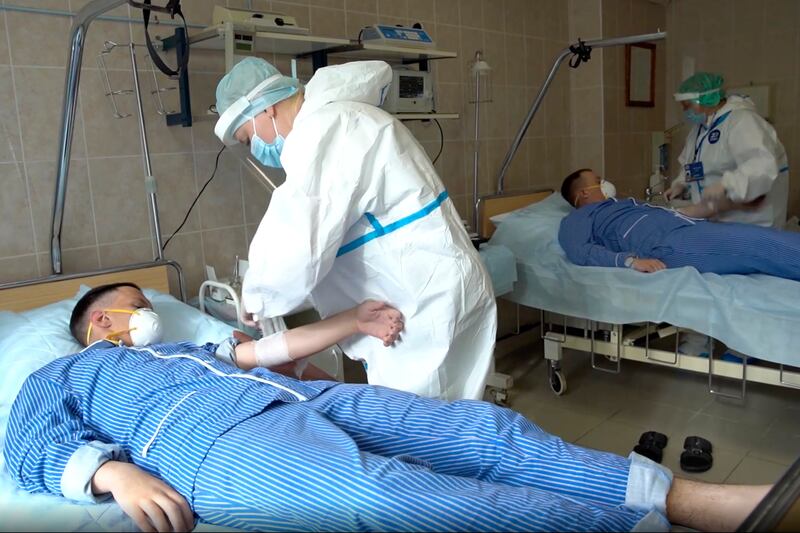Your body might produce antibodies to battle the novel coronavirus for four months and fade away slowly thereafter, which raises new hopes for the COVID-19 vaccine, according to a new study.
What’s happening:
The new research — published in the New England Journal of Medicine — looked at more than 30,500 COVID-19 patients in Iceland.
- The researchers followed subjects for four months after infection. Most studies only review patients for 28 days. Research has remained mixed about how long antibodies last for those who had the novel coronavirus.
- The researchers found our bodies create a new round of antibodies a month or two after infection, which might help with protection.
This could be a good sign for a vaccine, too
This new research means there is “hope that host immunity to this unpredictable and highly contagious virus may not be fleeting and may be similar to that elicited by most other viral infections,” the researchers wrote in an editorial on the study.
“Infections and vaccines generate two waves of antibodies: The first wave is generated by early short-lived plasma cells, poised to populate the systemic circulation, but this wave subsides rapidly after resolution of acute infection,” wrote researchers Galit Alter and Robert Seder in the editorial.
Researchers admitted two hiccups — more research needs to be done to confirm this happens. And it’s unclear if the antibodies really prevent reinfection or not, according to the New York Post.


